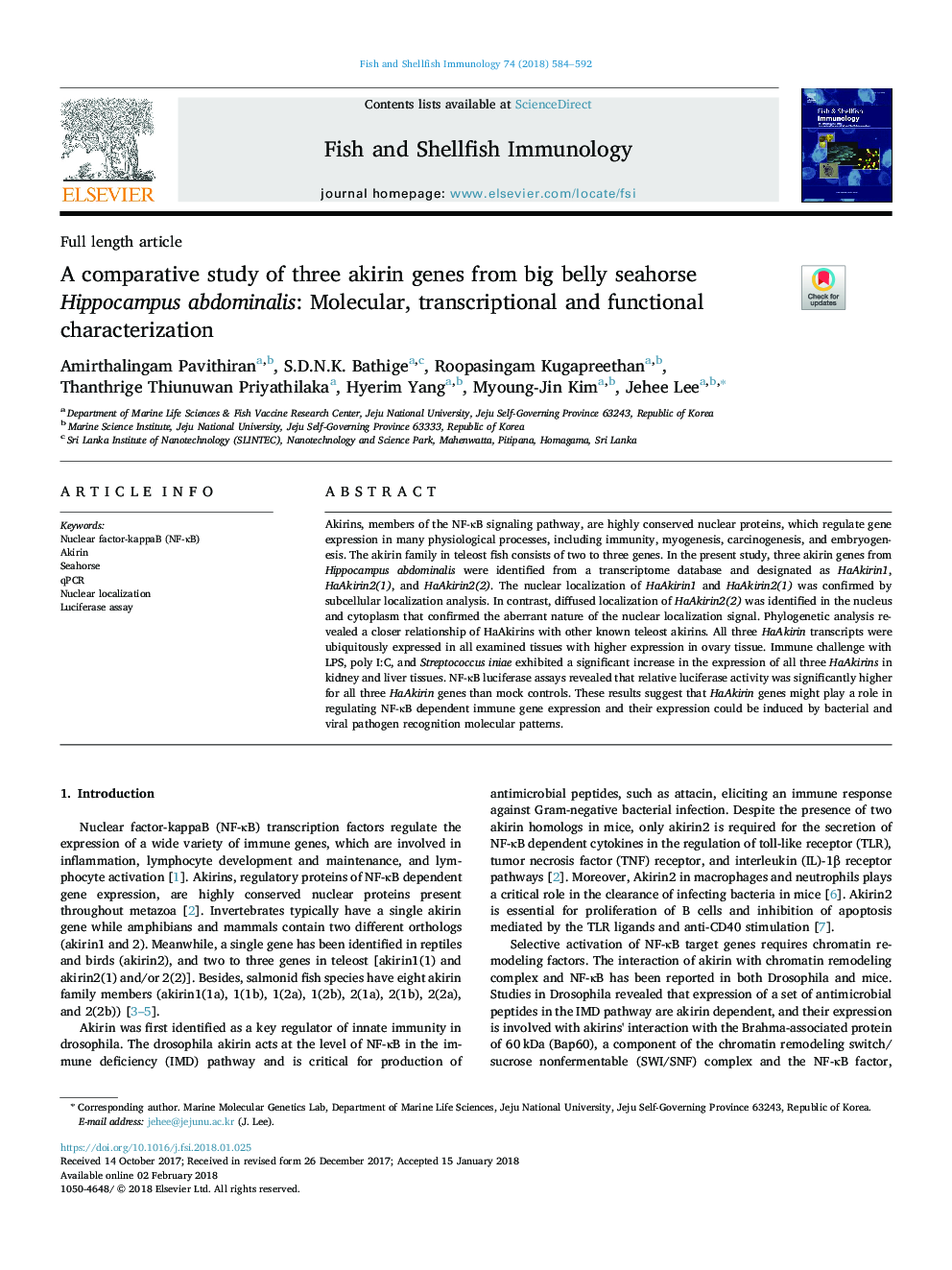| Article ID | Journal | Published Year | Pages | File Type |
|---|---|---|---|---|
| 8498737 | Fish & Shellfish Immunology | 2018 | 9 Pages |
Abstract
Akirins, members of the NF-κB signaling pathway, are highly conserved nuclear proteins, which regulate gene expression in many physiological processes, including immunity, myogenesis, carcinogenesis, and embryogenesis. The akirin family in teleost fish consists of two to three genes. In the present study, three akirin genes from Hippocampus abdominalis were identified from a transcriptome database and designated as HaAkirin1, HaAkirin2(1), and HaAkirin2(2). The nuclear localization of HaAkirin1 and HaAkirin2(1) was confirmed by subcellular localization analysis. In contrast, diffused localization of HaAkirin2(2) was identified in the nucleus and cytoplasm that confirmed the aberrant nature of the nuclear localization signal. Phylogenetic analysis revealed a closer relationship of HaAkirins with other known teleost akirins. All three HaAkirin transcripts were ubiquitously expressed in all examined tissues with higher expression in ovary tissue. Immune challenge with LPS, poly I:C, and Streptococcus iniae exhibited a significant increase in the expression of all three HaAkirins in kidney and liver tissues. NF-κB luciferase assays revealed that relative luciferase activity was significantly higher for all three HaAkirin genes than mock controls. These results suggest that HaAkirin genes might play a role in regulating NF-κB dependent immune gene expression and their expression could be induced by bacterial and viral pathogen recognition molecular patterns.
Related Topics
Life Sciences
Agricultural and Biological Sciences
Aquatic Science
Authors
Amirthalingam Pavithiran, S.D.N.K. Bathige, Roopasingam Kugapreethan, Thanthrige Thiunuwan Priyathilaka, Hyerim Yang, Myoung-Jin Kim, Jehee Lee,
